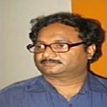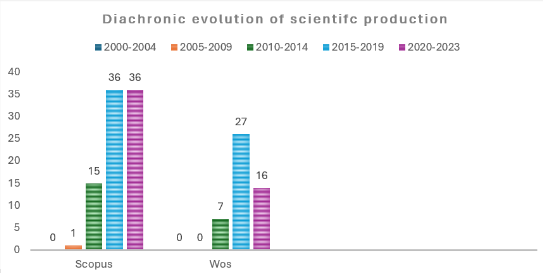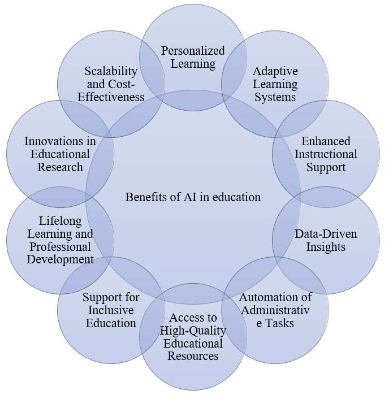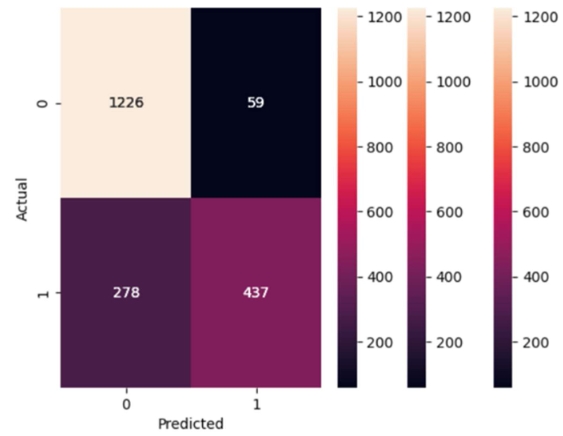Chemistry teachers’ utilization of three different constructivist-based teaching strategies in senior secondary schools in Dekina local government area of Kogi state
Abstract
The study investigated chemistry teachers’ utilization of three different constructivist-based teaching strategies in senior secondary schools in the Dekina local government area of Kogi state. The study adopted a descriptive survey research design. Three research questions and two hypotheses guided the study. The population of the study comprised 33 chemistry teachers in all the public secondary schools in the Dekina local government area. Purposive sampling was used for the study. The instrument for data collection was an observational rating scale on chemistry teachers’ utilization of constructivist-based teaching strategies developed by the researcher. The reliability of the instrument was obtained. A Cronbach alpha reliability estimate was used to determine the internal consistency of the instrument, which gave a reliability index of 0.71. Kendell’s coefficient of concordance was used to determine the inter-raters’ reliability, which was obtained as 0.75. Data collected were analyzed using mean and standard deviation to answer the research questions, while the z-test was used in testing the hypothesis formulated at the 0.05 level of significance. The findings of the study revealed the following: it was revealed that chemistry teachers’ qualifications and experience influence the utilization of constructivist-based teaching strategies. Based on the findings and conclusions, it was recommended, among others, that the government and Ministry of Education should employ qualified and experienced teachers to handle chemistry courses in senior secondary schools.
References
[1]Ezeudu FO. Fundamentals of Science Education. Eungu City and Company Ltd.; 2011.
[2]Ameh BF. Effects of Cooperative Learning and analogy on Secondary School Student’s achievement and interest in chemistry. European Journal of Science Teaching, 2015; 16: 45-53.
[3]Osei YA. New School Chemistry for Science Senior Secondary. Onitsha, African First Publishers plc; 2013.
[4]Atkins P. What is Chemistry? OUP Oxford; 2013.
[5]Adesoji FA, Ogini AM. Student’s aptitude indices as predictors of learning outcomes in Chemistry. British Journal of Arts & Social Sciences. 2010; 8(11): 174-182.
[6]Igboanugo BI. Effects of peer teaching on student’s achievement and interest in difficult chemistry concepts. International Journal of Educational Research. 2013; 72(2): 61-71.
[7]Njoku ZC. Teaching science to learners with special needs. In: Akpan B (editor). Science Education. A Global Perspective. 2013. pp. 215-227.
[8]Ajaja OP. Which strategy best suits biology teaching? Lecturing, concept mapping, cooperative learning, or lecturing cycle? Electronic Journal of Science Education. 2013; 17(1): 1-37.
[9]Osokoya MM. Teaching science methodology in basic science and technology classes in southwest Nigeria. Asian Journal of Education. 2013; 1(4): 206-214.
[10]Ayeni AJ. Teachers’ Professional Development and Quality Assurance in Nigerian Secondary Schools. World Journal of Education. 2011; 1(2). doi: 10.5430/wje.v1n2p143
[11]Adunola O. The Impact of Teachers’ Teaching Methods on the Academic Performance of Primary School Pupils in Ijebu-Ode Local Government Area of Ogun State. Ego Booster Books; 2011.
[12]Tebabal A, Kahssay G. The effect of a student-centered approach in improving students’ skills and conceptual understanding of scientific concepts. Latin America’ Journal of Education. 2011; 5(2): 374-381.
[13]Bada SO, Olusegun S. Constructivism learning theory: A paradigm for teaching and learning. Journal of Research & Method in Education. 2015; 5(6): 66-70.
[14]Essien EE, Undie JB. Promoting Quality Education in Social Studies Through Constructivist Teaching Model. Journal of Education and Practice. 2018; 9(21): 60-64.
[15]Saif HM, Kinyo L. The role of constructivism in the enhancement of social studies education. Journal of critical reviews. 2020; 7(7). doi: 10.31838/jcr.07.07.41
[16]Kareem AA. Effect of Computer-assisted instruction on students’ academic achievement and attitude in Biology in Osun State, Nigeria. Journal of Emerging Trends in Educational Research and Policy Studies 2015; 6(1): 69-73.
[17]Teff-Seker Y, Portman ME, Kaplan-Mintz K. Project-Based Learning in Education for Sustainable Development: A Case Study of Graduate Planning Students. Case Studies in the Environment. 2019; 1(1): 1-16.
[18]Vasiliou C, Ioannou A, Zaphiris P. Technology enhanced PBL in HCI education: A case study. In: Proceedings of the 14th IFIP TC 13 International Conference on Human-Computer Interaction; Cape Town, South Africa; 2–6 September 2013. pp. 643-650.
[19]Loris S. What is peer tutoring strategy? Available online: https:// www.study.com/ definitions/pros/cons/ (accessed on 7 January 2024).
[20]Audu UF, Agbo JA. Educational Technology in Practice. De New Creation Publishing House Ltd.; 2010.
[21]Musau LM, Abere MJ. Teacher Qualification and Students’ Academic Performance in Science Mathematics and Technology Subjects in Kenya. International Journal of Educational Administration and Policy Studies. 2015; 7(3): 83-89.
[22]Achor EE, Samba R, Ogbeba J. Teachers’ awareness and utilization of innovative teaching strategies in secondary school science in Benue state, Nigeria. Educational Research. 2010; 1(2): 032-038.
[23]Akinsolu AO. Teachers and student’s academic performance in Nigeria secondary schools: implication for planning. Florida Journal of Educational Administration and Policy. 2010; 3(2): 86-103.
[24]Osorung MM, Akuche VE. Effects of school location on students’ learning outcomes in practical physics. African Journal Online. 2012; 20(1): 241-251.
[25]Ngozi EG. Investigating science teachers’ utilization of research findings on active learning strategies in secondary schools. Available online: https://www.researchgate.net/publication/377085732_INVESTIGATING_SCIENCE_TEACHERS'_UTILIZATION_OF_RESEARCH_FINDINGS_ON_ACTIVE_LEARNING_STRATEGIES_IN_SECONDARY_SCHOOLS (accessed on 2 January 2024).
[26]Bamidele AD, Adekola FF. Effects of teachers’ qualifications and teaching experience on students’ achievement in basic science in junior secondary school. International Journal of Education and Evaluation. 2017; 1(2): 231-238.
[27]Oyelekan OS, Igbokwe EF, Olorundare AS. Science teachers’ utilization of innovative strategies for teaching senior school in Ilorin, Nigeria. Malaysian Online Journal of Education Science. 2017; 5(2).
[28]Khurshid F, Zahur B. Comparison of Teachers’ Awareness and Utilization of Innovative Strategies in Private and Public sectors secondary schools. Elixir Psychology. 2013; 45: 12242-12245.
[29]Odoh B. Instructional Methods Adopted by Science Teachers for Effective Teaching and Learning in Zone B Education Zone of Benue State, Nigeria [Master’s thesis]. Benue State University; 2009.
[30]Ebiringa AI. Assessment of the Instructional Competencies of the Teaching of Accounting for the Implementation of the Senior Secondary School Curriculum [Master’s thesis]. University of Nigeria; 2012.
[31]Tella A. Teachers’ variables as a prediction of academic achievement of primary school pupil’s mathematics. International Electronic Journal of Elementary Education. 2008; 1(2).
[32]Ewetan TO, Ewetan OO. Teachers’ teaching experience and academic performance in mathematics and English in public secondary schools in Ogun State, Nigeria. International Journal of Humanities Social Science and Education. 2015; 2(2): 241-248.
[33]Adeniyi CO, Ogundele LO, Odetola CA. Teacher quality factor as a determinant of students’ achievement in mathematics. Journal of Education and Practice. 2014; 5(37): 7-15.
Copyright (c) 2024 Dozie John Okongwu, Unekwu Joshua Ogu

This work is licensed under a Creative Commons Attribution 4.0 International License.









